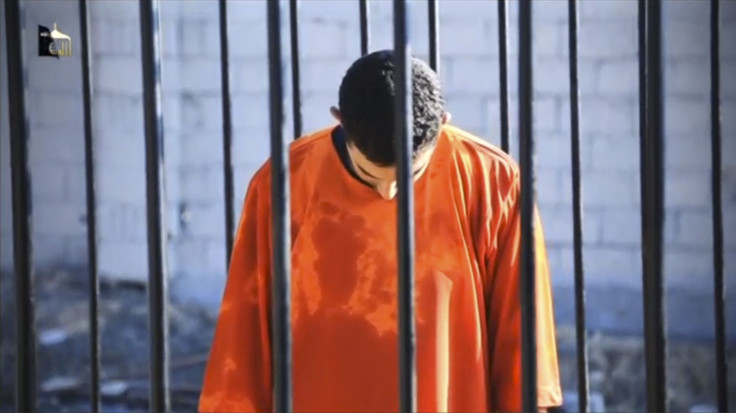Top Muslim Cleric Calls For 'Killing, Crucifixion' Of ISIS Militants After Brutal Execution Of Jordanian Pilot

Ahmed al-Tayeb, the head of Egypt’s Al-Azhar mosque -- the foremost institution in the world for the study of Sunni theology and Islamic law -- strongly condemned the brutal killing of Jordanian pilot Muath al-Kaseasbeh, calling it a “cowardly terrorist act,” in a statement released Wednesday.
“Islam forbids killing humans. It is a malicious and vile act repudiated by all religions,” al-Tayeb, a moderate Sunni who has been an outspoken critic of Egypt’s Muslim Brotherhood, said, in the statement, adding that the Quran prescribed a punishment of “killing, crucifixion and chopping of the limbs” for the crime of killing innocent people.
ISIS had, on Tuesday, released a video showing the 26-year-old Jordanian air force pilot, who had been captured by the group in December after his plane crashed near Raqqa, Syria, being burned alive inside a cage. While ISIS has, in the past, released several videos showing ritualized executions of its captives, the gruesome nature of al-Kaseasbeh’s killing has reportedly sparked unprecedented outrage among religious and political leaders in the region.
Daily Cartoon: On #ISIS' killing of Jordanian pilot #Muath. For more, see our Opinion page - http://t.co/ifsQF6qSk3 pic.twitter.com/NV1aNd8A6M
— Al Arabiya English (@AlArabiya_Eng) February 4, 2015
The 57-nation Saudi Arabia-based Organization of Islamic Cooperation, which is the largest bloc of Muslim countries, said that the execution “disregards the rights of prisoners Islam has decreed, as well as the human moral standards for war and treatment of prisoners.”
Iyad Madani, the secretary-general of the organization, said, in a statement: “It is profoundly saddening to see the depth of malaise parts of the Middle East region have descended to, the intellectual decay, the political fragmentation and the abuse of Islam.”
Condemnation and condolences also came in from several other nations in the Middle East, with Bahrain, Qatar and Kuwait denouncing the act as “despicable,” “criminal,” and one that went against the “tolerant principles of the Islamic faith, human values and international laws and norms,” according to media reports.
“This heinous and obscene act represents a brutal escalation by the terrorist group, whose evil objectives have become apparent,” Sheikh Abdullah bin Zayed al-Nahyan, the United Arab Emirates’ foreign minister, reportedly said on Wednesday.
© Copyright IBTimes 2024. All rights reserved.






















